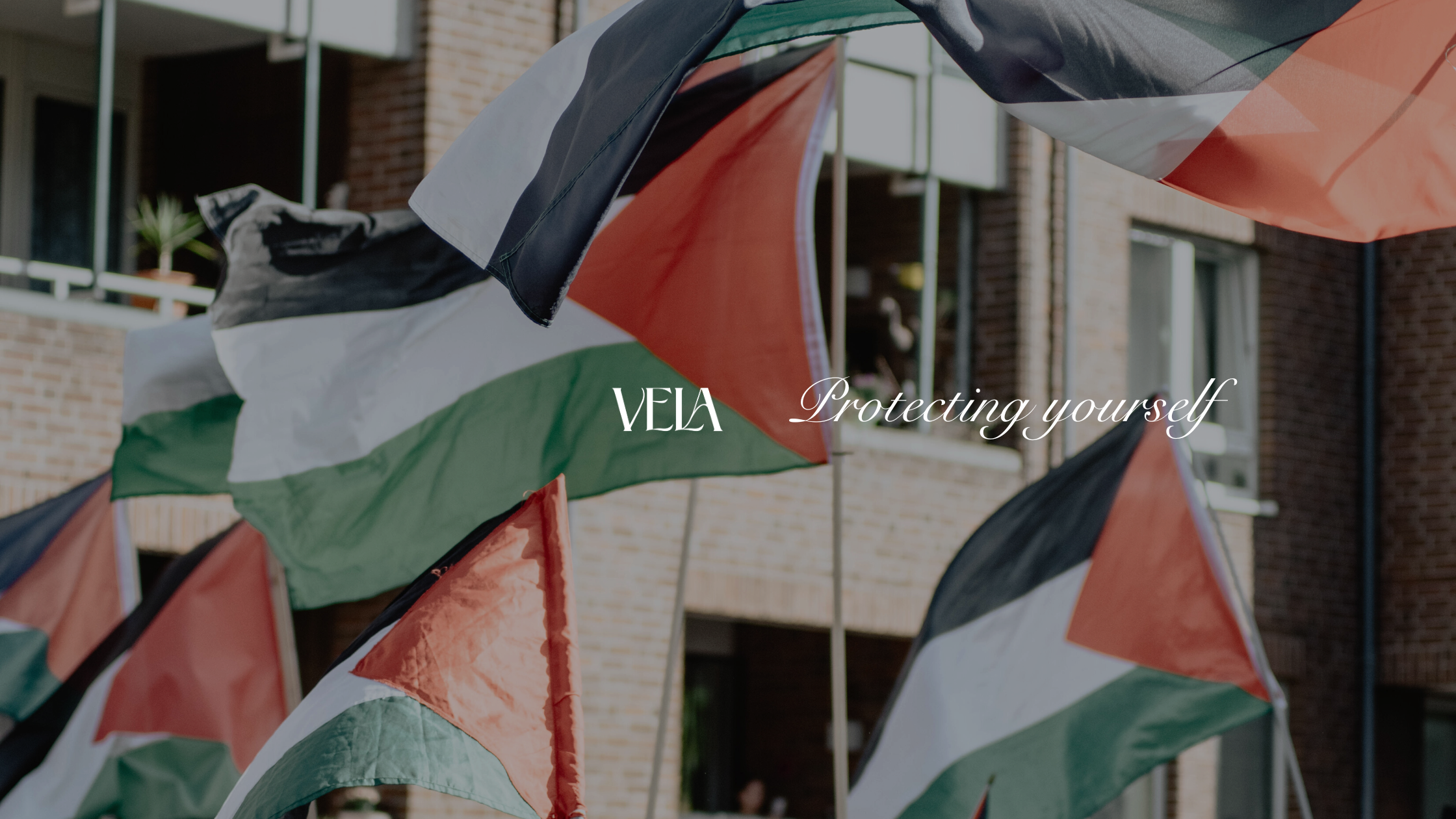I remember the exact moment of the day my mother and I were verbally harassed by a man in the parking lot of our local grocery store.
It happened in our hometown of Decatur, Georgia. His eyes were filled with a fiery hate for us, as he drove his car directly toward us, two visibly Muslim women of color. I remember us collectively gasping as we assumed he was about to hit us. He stopped his car in front of our trunk, where we were loading groceries, and began yelling at us. He started to tell us to “go back to your country!” and that we “Mohammedans” weren't welcome here, as he kept on inching his car closer to us, perhaps to create the illusion that he was eventually going to hit us.
He wanted to instill a sense of fear in us. He wanted to make us feel inferior and utterly afraid. He wanted to make us feel less than, and that we didn't belong where we were.

Unfortunately, me and my mom were not outliers, we were just one of the thousands of cases of Islamophobic hate incidents that happen across the country per year. Not only are Islamophobic hate crimes heavily normalized across the US and Europe — but hate for Muslims has been shown to increase at times when the media and public figures are actively spreading hate speech, or disinformation that plays into stereotypical tropes about Muslims. Currently, Israel’s active genocide and siege on Gaza has unleashed a chain of vicious hate crimes and attacks against Muslim and Arab people living in the West. The Council of American Islamic Relations (CAIR) reports that since Oct. 7th, there has been a 216% increase in requests for support due to the rapid increase in reports of hate-inspired incidents after Oct. 7th. The organization has seen the largest new wave of Islamaphobic attacks in the U.S. since the election of former president, Donald Trump — which also ushered in a new age of hate against Muslims in the country.
For those of us who are visibly Arab or Muslim, it is not an exaggeration to say that there was a sense of anxiety and fear inside of our hearts when we left the house the day after Oct. 7th.
Palestinian, Arab, and Muslim communities were devastated upon hearing of the brutal murder of little Wadea Al-Fayoume whose life was relentlessly taken away by a man radicalized by the orientalist and Islamophobic talking points of Western media outlets, among the likes of CNN and BBC, for example. There are a plethora of Islamophobic hate crime cases that have left us scared, disillusioned, and shocked — to say the least. When I think of people like Talat Jehan Khan, who was stabbed to death outside of her apartment in Texas this past October, I can't help but feel petrified at the thought of leaving the house on my own. When I think of the three young Palestinian men who were shot in Vermont for the simple crime of wearing a Kuffiyeh, I start to second-guess myself before I choose to proudly wear a Kuffiyeh.

One cannot deny the obvious double-layered experience that many visibly Muslim women face as well, especially during times of increased vitriol for communities of MENA and Muslim backgrounds. Oftentimes, Muslim women are not able to conceal their identities so easily as our hijabs give away that we are Muslims. The intersectionality of racism, religious discrimination, and misogyny against Muslim women often operate as a triple-edged sword. This usually puts us in a precarious situation where we are more likely to face Islamophobia more than Muslim men at times. Our hyper-visibility as Muslims can sometimes make us an easy target for bigots who are looking to project their deep-rooted Islamophobia.
But with this all in mind….. What can we do to ensure our communities are well-equipped to respond to the current wave of anti-Arab, anti-Palestinian, and Islamophobic hate?
- First, we must stay informed and vigilant as much as we can. Palestinian, Arab, and Muslim communities must make an effort to be aware of their surroundings and local community in order to assess potential risks in the area.
- Fostering understanding and educating others about Islam is another important item in our toolbox. Open dialogue can help reduce misconceptions and dispel stereotypes.
- Self-defense training is a great start for our communities to prioritize empowerment through physical strength. Organizations such as the Malikah Center in NYC, are already laying the groundwork for what a sustainable model of grassroots organizing can look like. The Malikah Center has been working for several years to equip communities of color, and especially women, with self-defense skills that “empower women to feel safe and secure.”
- Knowing your legal rights and seeking legal assistance if you encounter discrimination or a hate crime is essential. The Council on American-Islamic Relations (CAIR) and Palestine Legal, for example, are organizations that specialize in supporting victims of such incidents and are at the forefront of defending those who are currently facing things like hate crimes, defamation, employment discrimination, etc.
- Lastly, seeking support is paramount to your emotional and psychological well-being during these tumultuous times. Leaning on friends, family, or mental health professionals is a good start especially when dealing with the aftermath of an Islamophobic crime.
Islamophobia and anti-Palestinian bigotry are dark and destructive, and the recent increase in fear and hostility towards Muslim and Palestinian communities cannot be understated. It is important now more than ever that we hold each other close and take an extra step to protect each other and make an effort to advocate for ourselves.




2 comments
I think you have exaggerated the prices of scarves🫣
thank you for sharing this, it is so important!
Leave a comment